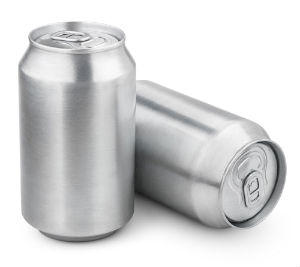
The negative health consequences of aluminum exposure have been recognized for quite some time. Unfortunately, this knowledge has not precipitated a mass removal of aluminum from common, household products such as deodorant, cookware, and food storage items.
A study recently published in the International Journal of Electrochemical Science has further confirmed what we all knew to be true. This study clearly states that aluminum cookware and aluminum foil can contaminate food. [1] The aluminum contamination may possibly increase the risk of osteoporosis and Alzheimer's disease, two conditions that are a serious threat to the elderly population. [2] [3] [4]
Researchers measured aluminum content in five types of meat that had been cooked in aluminum cookware and found that aluminum concentrations shot up 378% in red meats and 215% in poultry when cookware temperature exceeded 150 F. Meats with a higher fat content tended to lean toward having a higher aluminum content. It was also found that heavily acidic foods have higher aluminum levels.
As is the case with other products that cause health concerns, aluminum is cheap and widely available. This study concluded that food cooked with aluminum foil is not safe and may lead to the development of numerous health complications. The only way to decrease one’s risk for these diseases is to completely avoid aluminum, an accomplishment that is somewhat challenging to achieve in today’s world.
How Can You Avoid Aluminum?
Avoiding aluminum can be tough. Many processed foods may use aluminum during production, creating a significant source of exposure for most individuals. Purchasing and eating whole, raw, organic foods is a good start to circumventing that concern. Limit restaurant food if at all possible, as many restaurants will cook with inexpensive aluminum pots, pans, and baking dishes.
Cook food in cast-iron cookware as much as possible, and always bake with glassware. By all means, avoid aluminum foil! Instead, store foods in sterilized glass containers. When it comes to personal care products, always look for aluminum in the ingredient label. If it lists this harmful ingredient, nix it and go to a natural or aluminum-free variety. Typically, antiperspirants will carry aluminum unless otherwise specified.
Be an informed consumer, do business with companies who provide products in line with your personal health goals, and let aluminum-using companies know you disagree with what they're doing. When making your voice heard, be sure to present companies with reputable science as a means of backing up your concerns. This can contribute a great deal toward changing the tide of current manufacturing processes, helping to reduce the amount of aluminum you and your family are exposed to every day.
References (4)
- Ghada Bassioni, Fathia S. Mohammed, Essam Al Zubaidy and Issam Kobrst. Risk Assessment of Using Aluminum Foil in Food Preparation. Int. J. Electrochem. Sci., 7 (2012) 4498-4509.
- Wang L, Hu J, Zhao Y, Lu X, Zhang Q, Niu Q. Effects of Aluminum on β-Amyloid (1-42) and Secretases (APP-Cleaving Enzymes) in Rat Brain. Neurochem Res. 2014 Jul;39(7):1338-45. doi: 10.1007/s11064-014-1317-z.
- Dahl C, Sogaard AJ, Tell GS, Flaten TP, Hongve D, Omsland TK, Holvik K, Meyer HE, Aamodt G. Do cadmium, lead, and aluminum in drinking water increase the risk of hip fractures? A NOREPOS study. Biol Trace Elem Res. 2014 Jan;157(1):14-23. doi: 10.1007/s12011-013-9862-x.
- Spencer H, Kramer L. Osteoporosis: calcium, fluoride, and aluminum interactions. J Am Coll Nutr. 1985;4(1):121-8.
†Results may vary. Information and statements made are for education purposes and are not intended to replace the advice of your doctor. If you have a severe medical condition or health concern, see your physician.







